📚 18 Books mentioned in "Rick Rubin on The Creative Act, Overcoming Ego, and Enjoying the Process" of The Daily Stoic

Podcast: The Daily Stoic
Episode: Rick Rubin on The Creative Act, Overcoming Ego, and Enjoying the Process
Published on June 9, 2023
Here’s a list of all the books mentioned in this episode. Click on the links to watch specific excerpts on YouTube and feel free to purchase the books if they caught your interest!
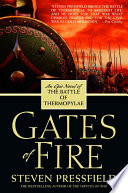
Gates of Fire
Buy Gates of Fire by Steven Pressfield on Amazon
His books are great. Oh, they're the best.
The podcast host praises Stephen Pressfield's books, expressing that they consider them to be the best, in the context of discussing Pressfield's advice.
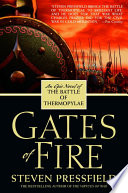
Gates of Fire
Buy Gates of Fire by Steven Pressfield on Amazon
What’s amazing about a book like Gates of Fire is that it's only 20 or 30 years old, but it feels like it's a thousand years old. When somebody does something I guess—even the War of Art—but when somebody does something that is both timely but also has no place in time, that’s something incredible about what art can do.
The host discusses the book 'Gates of Fire', noting how it manages to feel both timeless and contemporary, despite being only 20 or 30 years old.
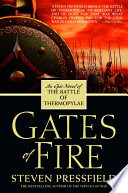
Gates of Fire
Buy Gates of Fire by Steven Pressfield on Amazon
Like I read—whenever I start a new project, I read one of Steven Pressfield’s writing books again, just from cover to cover. Um, and I feel like there’s something in the way that you did it that, um, you know, is the difference between depth and width, and I think you’ve created something that has a greater depth and value to people.
The host mentions that he re-reads Steven Pressfield’s books on writing whenever he starts a new project, finding inspiration from their depth and value.
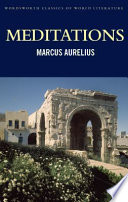
Meditations
Buy Meditations by Aurelius Marcus on Amazon
I think about that; obviously, the book that's influenced my life the most is Marcus Aurelius' Meditations. What I think is so surreal about that book is you have the most powerful person in the world, 2000 years ago, writing a journal to himself, never intending it to be published.
In this segment, the podcast host reflects on how the book 'Meditations' by Marcus Aurelius has profoundly influenced his life. He finds it surreal that the most powerful person in the world, two millennia ago, wrote a personal journal that was never meant for publication.
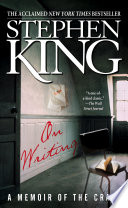
On Writing
Buy On Writing by Stephen King on Amazon
You're not the same person who wrote your first book, so if you're using exactly the same methods that that guy was using, they might not be optimal. No, it's changed a ton.
The host suggests that Rick Rubin has written at least one book, highlighting that personal growth and changes in methods over time may affect the relevance of past approaches.
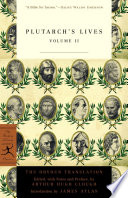
Plutarch's Lives, Volume 2
Buy Plutarch's Lives, Volume 2 by Plutarch on Amazon
Shakespeare is stealing from the writings of Plutarch, who existed roughly around the time of Marcus Aurelius. He quotes other fables and stuff, but you can tell that Shakespeare is stealing from ancient stories—just as like the Renaissance was powered by them falling back in love with the Greeks and the Romans.
The host discusses how Shakespeare's work draws from the writings of Plutarch, highlighting the influence of ancient stories and authors during the Renaissance.
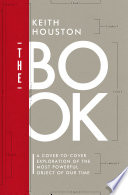
The Book: A Cover-to-Cover Exploration of the Most Powerful Object of Our Time
But one of the things that I've learned from the book in working on the book is that that last phase, the editing and getting ready to share it, you can do that on a schedule. Whereas you can't really collect the seeds on a schedule, you can't really do the experimentation on a schedule.
The podcast guest discusses insights gained from his own book during its writing process, highlighting the importance of scheduling the editing phase compared to the more unpredictable phases of idea generation and experimentation.
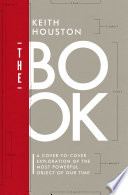
The Book: A Cover-to-Cover Exploration of the Most Powerful Object of Our Time
Then when it's done and there are no more creative decisions to be made, and the book is written, you may not have the final final version of it, but you know exactly what the book is. You've said what you want to say, and you feel good about it; that would be the first time to think about, okay, what could a cover look like, what could the marketing look like, who's the audience for this?
In this segment, the host discusses the writing process of a book and mentions the importance of understanding the content and audience once the writing is complete. The reference suggests he might be alluding to Rick Rubin's book, emphasizing creativity and marketing after finalizing a manuscript.
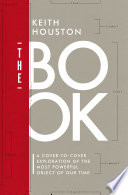
The Book: A Cover-to-Cover Exploration of the Most Powerful Object of Our Time
That's when you can start thinking; we call that the crafting phase in the book. The first stage is the seed phase where we're gathering ideas; the second phase is the experimentation phase where we're watering those seeds, seeing what they want to be on their own.
In this segment, the podcast guest, Rick Rubin, discusses a 'crafting phase' described in his book. He elaborates on the different stages of creativity, referencing a framework that helps individuals develop their ideas.
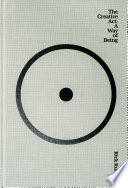
The Creative Act
Buy The Creative Act by Rick Rubin on Amazon
It’s the book I wanted to write; that’s one of the things about it is like—and I think when we did talk about it all those years ago, that was probably what you said. It’s like, why do you want to do that book?
The guest mentions 'the book' which refers to Rick Rubin's book that he is discussing and promoting during the podcast.
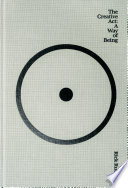
The Creative Act
Buy The Creative Act by Rick Rubin on Amazon
If we put our—one of the things I recommend in the book is like creating the equivalent of creating office hours, having a schedule to work. Where you say I'm going to sit down for this could be 20 minutes, could be three hours; it's up to you what that window is and how you want to do it.
The host refers to a recommendation from Rick Rubin's book about establishing a structured work schedule by setting aside dedicated time for focused work.
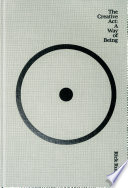
The Creative Act
Buy The Creative Act by Rick Rubin on Amazon
You have to find some way to be present and both very committed and also, as you talk about in the book, kind of detached from all of that external stuff. Absolutely, and I recommend that artists engage or re-engage with why they wanted to do it in the first place and really find their love.
In this segment, the host discusses the idea of being present and committed while also remaining detached from external distractions, referencing insights from a book by Rick Rubin.
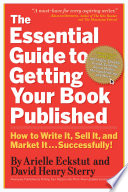
The Essential Guide to Getting Your Book Published
I would clarify—your book is full of paradoxes, I think much more Eastern than Western, your embrace of paradox instead of singular permanent truth. You tell the story about the man in Calcutta and then you have this wonderful little poem on page 104, and you say, beware of the assumption that the way you work is the best way simply because it's the way you've done it before.
During the discussion, the host comments on Rick Rubin's book, highlighting how it contains many paradoxes and emphasizes a more Eastern approach to understanding truth. They also mention a specific story and quote a line from page 104, illustrating the book's depth and insights.
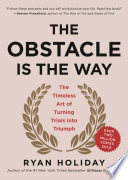
The Obstacle Is the Way
Buy The Obstacle Is the Way by Ryan Holiday on Amazon
And, um, I actually—I had to go back through and read some of my earlier books. I’d reread The Obstacle is the Way and what I was struck by, what I noticed there for the first time was that there was a tightness to the writing and the book is shorter.
The host reflects on his earlier writings and highlights insights gained from rereading 'The Obstacle is the Way', noting the tightness in the writing and the book's brevity.
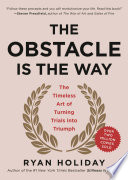
The Obstacle Is the Way
Buy The Obstacle Is the Way by Ryan Holiday on Amazon
And, um, I actually—I had to go back through and read some of my earlier books. I’d reread The Obstacle is the Way and what I was struck by, what I noticed there for the first time was that there was a tightness to the writing and the book is shorter.
In this episode, the host recounts his experience of rereading his earlier book, 'The Obstacle is the Way,' noting the clarity and conciseness of the writing.
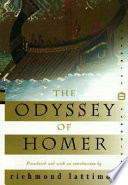
The Odyssey of Homer
Buy The Odyssey of Homer by Homer on Amazon
In the Odyssey, he talks about the 'wine-dark sea.' Who thinks the ocean looks like wine?
The podcast host refers to 'The Odyssey' when discussing how the author describes the ocean as 'wine-dark,' prompting a reflection on the appearance of the sea.
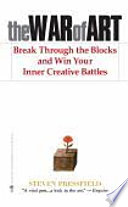
The War of Art
Buy The War of Art by Steven Pressfield on Amazon
When somebody does something I guess—even the War of Art—but when somebody does something that is both timely but also has no place in time, that’s something incredible about what art can do. Where it can be everywhere and nowhere current and timeless at the same time.
In this segment, the host refers to the book 'The War of Art' as an example of how art can transcend time, highlighting its ability to be both immediate and timeless.
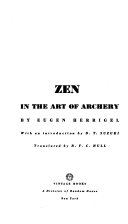
Zen in the Art of Archery
Buy Zen in the Art of Archery by Eugen Herrigel on Amazon
You've read Zen and the Art of Archery, I'm sure, right? I don't know if I've ever read that; I know I've had the book, but I don't know if I've ever read it.
The host asks Rick Rubin if he has read the book 'Zen and the Art of Archery', indicating a setup for a deeper conversation about the concepts explored in the text.
I don't know if I've ever read that; I know I've had the book, but I don't know if I've ever read it. It's a wonderful, fascinating book.
Rick Rubin expresses uncertainty about whether he has fully read 'Zen in the Art of Archery', a book he possesses, while acknowledging its captivating nature.
